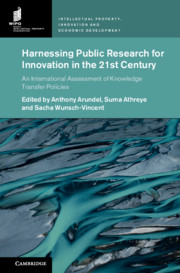Knowledge transfer has received considerable attention over the past few decades, and is recognized as playing a key role in a competitive knowledge-based economy. Enabling access to excellent, cutting-edge research is vital to tackling the economic, social, and environmental challenges countries face. Through knowledge transfer, public research organizations can maximize the impact of their research, delivering tangible real-world benefits. For individual businesses, it can enable them to improve performance, increase productivity and gain access to new resources and world-leading expertise. And at a national level, knowledge transfer drives economic growth and delivers social benefits. Internationally, there have been achievements in building partnerships and relationships between businesses, research organizations, and government bodies, to deliver real value. However, challenges remain, not least that of assessing the impacts of knowledge transfer initiatives in order to understand how to improve policies and practices.
This is easier said than done. How do you go about trying to evaluate these impacts? Most data collection, if any, occurs at a national level and there is no standardization of what data are collected. There also needs to be a clear understanding of how the different approaches and different channels of knowledge transfer work, such as the interplay between more open science-type approaches with the formal licensing and collaborative agreements.
This book aims to address these gaps. Its contributors are experts in their fields and provide an international perspective on the different approaches to knowledge transfer. It develops a conceptual framework to enable the evaluation of different knowledge transfer policies and practices, with a standardized set of metrics for assessing national or institutional performance. It also makes a valuable contribution in developing a new methodology for how to measure and assess the global volume and distribution of patenting activities carried out by public research organizations. The development of a common evaluation framework on the possible costs, benefits, and impacts of knowledge transfer activities is an important step forward, providing a better evidence base on which policy decisions can be taken. By assessing the interaction of existing policies and the underlying innovation system structures, the book identifies what works best under different conditions and makes policy recommendations relevant for both high- and medium-income countries. For policymakers, it is vitally important to identify both what works and what does not work, and in what situations, in order to understand how to improve the efficiency of knowledge transfer activities in order to achieve maximum impact.
I welcome the contribution this book makes to the evaluation of knowledge transfer policies and practices, laying important groundwork for future study and the development of innovative policy approaches.



